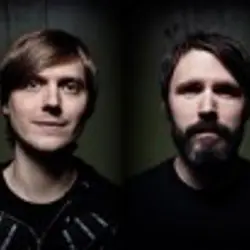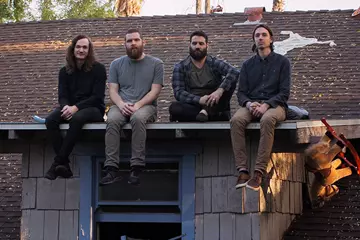 Pelican
Pelican"It seems fitting, listening to Pelican’s music, that the band hail from Chicago,” begins the band’s official press release. Simple words, but not without meaning. The Windy City is one of the cornerstones of instrumental music, with the developing experimental, jazz-influenced scene leading to bands like Tortoise and Gastr del Sol following the same creative line as their Canadian counterparts like Thee Silver Mt, Zion and Godspeed You! Black Emperor. Pelican, however, took that energy and turned it into an admonition against assuming all instrumental post-rock bands were the same, or even alike; their sound, stemming from the ‘90s punk and grunge scenes, is fast, direct and uncomplicated. What We All Come To Need, their well received 2009 release, saw the four-piece travel all over the map, with extended tours in the US and Europe. But then, there was almost nothing. Last year’s Forever Becoming was both the record fans had been waiting for, and also the capstone on what had been a quiet four years.
“I think it just feels really good to be playing anywhere right now,” Trevor de Brauw laughs when asked how the current album tour is going. “ Y’know, we don’t pursue the band as a job anymore, which is something we were kind of trying to do for several years. Now, we tour closer to six weeks out of the year than six months. Really, wherever we go, it just feels really good to get in front of an audience and play these songs. You sometimes forget, when you’re working and you don’t really have time to put into as much touring as you used to, how great it is to play live in front of people, you know, a few times in a few weeks. It’s always meant a lot to us but it’s even more of a precious experience now. I mean, if it’s Europe or the States or even Australia, were we haven’t been for an untold number of years,” he chuckles, “It’s exciting for us.”
The obvious energy de Brauw conveys is something of a relief, considering it’s the exact opposite that led to the band disappearing for so long. By his own admission, they lost their love for music.
“[Having jobs and families] kind of slowed things down, but then again a lot of things slowed things down,” he says. “What it was was that we were dormant for a fair chunk of time. We toured until the end of 2009, and then in 2010 we played, I don’t know, four or five shows for the whole year. We were rarely seeing each other, and it wasn’t later until 2011 that we really started meeting up and doing things more regularly. It’s just a matter of being so spread out; our drummer [Larry Herweg] lives in Los Angeles, which is the entire width of the country away from the rest of us. So we’re not the type of band that practices every week. So the band kind of slowed down to a complete stop, and we were only doing things together when we had shows. I feel like the larger part of the time between records was spent in a kind of dormancy, with us not doing anything, and trying to rediscover the love of music because I think some of that was lost from going at it so hard for so long. Once that spark happened again, everything kind of flowed at a normal pace again. Bryan [Herweg] and I started meeting up more regularly. The record came together, writing-wise, over a period of about 12 months, which is barely normal for our records. So yeah, I think it was just a matter of recharging the batteries.”
Don't miss a beat with our FREE daily newsletter
There was another spanner in the works when it came to getting back that energy. Laurent Schroeder-Lebec, a founding member of Pelican and one of the main songwriters within the band, announced suddenly he was leaving in June 2012, as they were beginning to put the pieces together towards Forever Becoming. While the split was amicable – Schroeder-Lebec announced that, unfortunately, his heart wasn’t in it anymore – and he had been mostly absent during that “dormant” period, it was just another obstacle to the continued resurgence of Pelican.
“You know, Laurent hadn’t been touring with us since 2011, which is when we started touring with Dallas [Thomas], who ended up joining the band right around that time because he was touring with us. But, you know, he did come and finish the album with us and everything. So in a way, it still feels really natural and it just feels like the evolution and progression of the band. This last tour, the last one we just did with Tombs, we did hit a lot of venues up the coast that we’d been to a few times before. There was a sense of nostalgia there, because obviously there’s a lot of stuff that had happened on tour when we were with Laurent, and those kind of things stay with you. So yeah, there is some sense of… I don’t know. I miss the past, but I live in the present. I’m really happy with where the band is right now, and what we’re doing. So there’s not too much looking back, unless it’s fondly sometimes.
“I really feel like the transition occurred naturally. It felt less like a jarring event where a member left and we scrambled to replace him. It was more like this really gradual transition. It was like we were transforming and morphing, and the fact that writing this record is part of that progression… the whole thing felt like, well, growing, in a way.”















